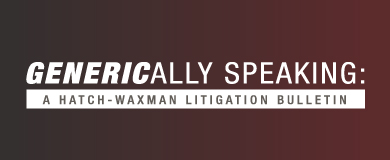- Acumen Powered by Robins Kaplan LLP®
- Affirmative Recovery
- American Indian Law and Policy
- Antitrust and Trade Regulation
- Appellate Advocacy and Guidance
- Business Litigation
- Civil Rights and Police Misconduct
- Class Action Litigation
- Commercial/Project Finance and Real Estate
- Corporate Governance and Special Situations
- Corporate Restructuring and Bankruptcy
- Domestic and International Arbitration
- Health Care Litigation
- Insurance and Catastrophic Loss
- Intellectual Property and Technology Litigation
- Mass Tort Attorneys
- Medical Malpractice Attorneys
- Personal Injury Attorneys
- Telecommunications Litigation and Arbitration
- Wealth Planning, Administration, and Disputes
Acumen Powered by Robins Kaplan LLP®
Ediscovery, Applied Science and Economics, and Litigation Support Solutions
-
June 1, 2022Chambers USA Recognizes Five Robins Kaplan Practice Groups And 17 Lawyers In 2022 Guide
-
June 1, 2022Seasoned Attorney Joins Firm’s Business Litigation Group
-
May 26, 2022Shira Shapiro Named Woman of Promise By The Pearl Society
-
June 3, 202219th Annual Advanced Insurance Law
-
June 9, 2022Building Your Brand: Perspectives and Insights from a Diverse Bar
-
June 10, 2022LGBTQ Legal Services: Transgender Name Change Clinic
-
May 24, 2022Briefly: Seeking Fees and Costs While on Appeal
-
May 19, 202211th Circ. Ban On Service Awards May Inhibit Class Actions
-
May 13, 2022Trademark Applications and the Murky Waters of Subject Matter Jurisdiction
-
June 2, 2022Sandberg Stepping Down as Meta COO After 14 Years
-
June 1, 2022Markets Revert to Recent Form as Pessimism Takes Hold
-
May 27, 2022Unexpectedly Strong Retail Sales Pull Markets Back from the Brink
Find additional firm contact information for press inquiries.
Find resources to help navigate legal and business complexities.
Senju Pharm. Co. Ltd. v. Apotex Inc.
January 03, 2012

Case Name: Senju Pharm. Co. Ltd. v. Apotex Inc., Civ. No. 07-779-SLR, 2011 U.S. Dist. LEXIS 146271 (D. Del. Dec. 20, 2011) (Robinson, J.).
Drug Product and Patent(s)-in-Suit: Zymar® (0.3% gatifloxacin ophthalmic solution); U.S. Patent No. 6,333,045
Nature of the Case and Issue(s) Presented: Whether the asserted claims of the ‘045 patent were obvious. In their ANDA, defendants certified that their generic product did not infringe certain claims of the '045 patent and that those claims were invalid. After a trial, the magistrate judge found infringement, but ruled that the claims were invalid as obvious. In post-trial briefings, plaintiffs challenged the finding of obviousness on one claim. The Court was persuaded that the evidence presented at trial before the magistrate judge may not have been sufficient, and therefore conducted a second trial on the obviousness issue for that one particular claim.
At the second trial, plaintiffs presented expert testimony regarding tests, which plaintiffs claimed were based on the prior art. Plaintiffs argued that the results of those experiments demonstrated that the claimed results disclosed in the ‘045 patent were unexpected. Defendants countered, arguing that plaintiffs' experiments were not conducted as described in the prior art references, and that the results were irrelevant because the experiments were not the proper test to determine the presence of the claimed invention. Further, defendants presented additional scholarly materials to demonstrate that the claimed results would have been routine and expected by one of skill in the art. The Court ruled in defendants' favor.
Why Apotex Prevailed: (No unexpected results). The Court found the claim obvious in light of the prior art because the scholarly material that defendants presented demonstrated that the supposed unexpected results actually would have been expected in view of the combination of certain prior art references. The Court gave little to no weight to plaintiffs' experiments because they were not the correct experiments to conduct in determining if the claimed results would have occurred when combining the prior art references and, perhaps more importantly, the experiments were not conducted in the manner described in the prior art references. The Court noted that the plaintiffs' experiments were "irrelevant at best, [and] unreliable at worst." Based on the evidence, the Court found that the asserted claim of the '045 patent was invalid as obvious.
Related Professionals
Related Publications
Related News
If you are interested in having us represent you, you should call us so we can determine whether the matter is one for which we are willing or able to accept professional responsibility. We will not make this determination by e-mail communication. The telephone numbers and addresses for our offices are listed on this page. We reserve the right to decline any representation. We may be required to decline representation if it would create a conflict of interest with our other clients.
By accepting these terms, you are confirming that you have read and understood this important notice.
